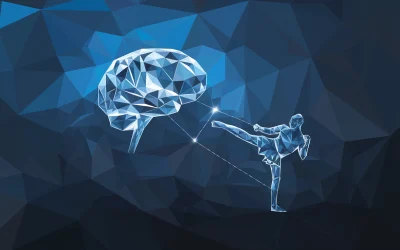Coaching martial arts requires an understanding of how participants learn and process information most effectively. Traditional linear approaches that focus solely on technique before application in live training may not be conducive to developing well-rounded fighters. Instead, coaches should aim to create an authentic learning experience that engages martial artists cognitively and physically.
Designing Representative Learning Environments
The learning environment needs to replicate the reality of competition and fighting as closely as possible. Drills or activities that are overly simplified or abstract often fail to fully engage students or allow for transference of skills to live training.
Coaches should structure practices and activities so there is always a clear relationship and application to actual fighting. The more authentic the learning experience, the more martial artists will be able to make connections and apply skills under pressure.
Stay True to the Complexity of Real Combat
It can be tempting to break techniques down into their simplest components when teaching beginners. However, this risks developing robotic fighters who fail to adapt in dynamic situations. The complexity and chaos of real fights should be maintained as much as safely possible.
Of course, some stripping back of techniques or skills can be useful on occasion for struggling students. But the end goal should be helping them handle the bigger picture. Isolated drills have their place, but should be limited.
Using Questions to Foster Understanding and Reflection
Questioning students during and after drills or sparring is a simple yet highly effective coaching technique. The right questions stimulate reflection and higher-level thinking about application of skills.
Rather than just commanding and correcting technique, ask students why something worked or did not work. This shifts focus from mindless repetition to active learning and understanding.
Adapting Question Difficulty as Needed
Some students will grasp principles quicker than others when questioned. Be ready to adjust the complexity of questions based on individuals.
Beginners may need more factual or lower-order questions to get them thinking reflectively. More advanced students can handle open-ended or hypothetical questions that require analysis and evaluation.
The goal is to meet martial artists where they are at and progressively deepen their understanding over time through discussion. Avoid recitation questions where the answer is already known.
Fostering Collaborative Learning
Allowing students to discuss strategy and technique collectively can be incredibly beneficial. Instead of coaches providing all the answers, let participants share perspectives and devise solutions together.
This social process aligns with how people naturally make sense of new information and experiences. It also helps foster teamwork and communication skills essential to fighting.
Work Together to Improve
Devoting time for students to collaboratively assess sessions and identify areas for improvement can be very productive. Coaches can structure this with guided questions, but should allow fighters freedom in the discussion.
Hearing improvement strategies directly from the students’ point of view, rather than just the coach’s interpretation, often provides unique insights. This input should help shape future lesson plans and activities.
Designing a Supportive Training Environment
For optimal learning and progress, the overall training environment needs to feel psychologically safe and supportive. Coaches play a pivotal role through their demeanor, language use, and response to mistakes.
The focus should be on creating challenge, not excessive critique. Fighters need to feel comfortable pushing themselves and taking risks without fear of harsh condemnation.
Normalize Making Mistakes
Of course in martial arts there will be frequent mistakes, especially while acquiring new skills. Coaches must normalize errors and reinforce effort over perfect execution.
Rather than punishing each mistake, frame them as opportunities for learning and improvement. This helps build resilience and a growth mindset essential for development.
Use Games to Minimize Pressure
Introducing games with more lighthearted scoring can be useful to reduce pressure during skill practice. For example, awarding creativity or quick reactions removes the fear of mistakes.
Ultimately, coaches want students to experience enjoyment while being fully engaged in their learning. Positive emotions will fuel motivation and train discipline that carries over into serious competition.
A Holistic Approach for Complete Martial Artists
Game-based approaches recognize learning as interactive and interpretive, engaging the mind and body together. Coaches should strive to develop independent thinkers, not just technically proficient fighters.
This requires understanding athletes individually, asking thoughtful questions, and collaborating with students in their learning. Maintaining a supportive environment is also essential for progress.
While isolating techniques has some benefits on occasion, training should remain authentic to the reality of combat. If sessions do not look and feel like actual fighting, transfer to competition will be limited.
Coaches can elevate their programs by incorporating game-based principles that foster engagement, reflection, and holistic skill development. In the end, helping martial artists reach their personal potential is what matters most.
Apex MMA implements many of the ideas discussed in this article into our own training and coaching philosophy. We always aim to develop confident, thinking fighters ready to excel on the mat or in the ring/cage.





0 Comments